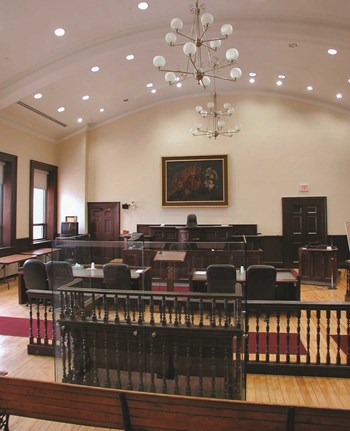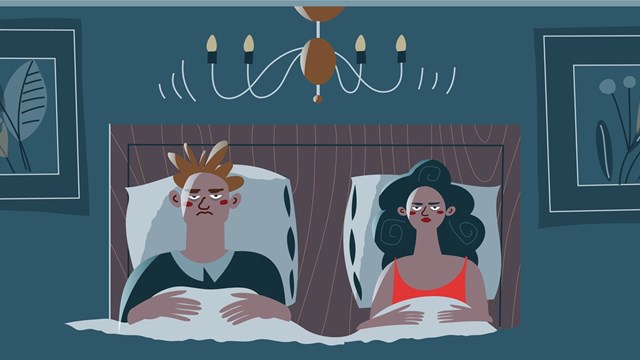
Lawsuits are usually not an association’s go-to method for dispute resolution. Expensive and time-consuming, they can quickly turn into a financial burden and may create strained relations in the community. Unfortunately, in some cases there’s no other way out. Last year a couple filed a suit against a neighbor, the association, individual board members, and property managers, who all neglected to respond to the couple’s complaint of odors infiltrating their unit, the result of 20 cats inhabiting the neighbor’s unit below.
This may have been an extreme case, but most associations will be involved in a lawsuit at some point, though the length, and certainly, the price tag may vary. “The only thing that’s under your control, as far as costs are concerned, are the actions you take. You have no control over the actions the other side takes — and sometimes the other side will take all kinds of crazy actions, simply because they have the money to do so; they want to wear down the other side,” says Foster Cooperstein, an attorney at the Law Office of Foster Cooperstein in Newton, Massachusetts. “Bottom line is if you end up in a courtroom, it’s usually not cheap.” Regardless of the cost or type of complaint, there are a few basic points about lawsuits that all associations should be aware of, he says.
The Basics
Unless you live in a utopian condo association, lawsuits are bound to happen. The most common ones include noise complaints between neighbors, construction defects in units and attempts to collect delinquent payments from residents. But how does a lawsuit begin? Boards should know what to do if they’re the target of litigation.
“The first thing the defendant should do is consult a lawyer. The deadlines, procedures, and strategy are very difficult to navigate without one,” says Adam Cohen, an attorney at the law firm of Pullman & Comley in Bridgeport, Connecticut. “In most jurisdictions, the defendant’s first official action is to file an ‘appearance’ form with the court and the plaintiff, which acknowledges the complaint and provides contact information for himself or his lawyer to be used going forward.”
In the case of maintenance fees, boards have to be strategic in going on the offensive. “The first thing that would happen is, obviously, over the time period before you bring suit you would’ve been sending a notice to the unit owner that they haven’t been paying their condo fee,” says Cooperstein. “Then what happens, is there’s a statute called the Super Lien statute, it gives the condominium priority over even the first mortgage for up to six months’ condo fees and expenses. Under that statute, when a condo unit owner falls two months behind, you give notice that you’re going to bring action,” he says.
Surprisingly, most cases are settled before the completion of a trial. That can make the experience cheap and relatively painless, but even a settlement can drag on, and come at the final hour of grueling litigation. Anyone involved should really be looking for a respectful way out as soon as they can.
Don’t Go At It Alone
That said, legal experts cannot recount how many times residents, property managers or even entire boards have tried to immediately resolve the dispute themselves, ultimately creating more legal challenges. A trap that associations find themselves in is selective enforcement, which for instance, can lead to what’s called a derivative suit. “If there are condominium documents providing that there are no pets allowed—a unit owner has a pet, and the board hasn’t taken any action. Another unit owner can request that the condominium take action, and if they don't take action to bring a lawsuit to enforce the rule, a unit owner can bring what is called a derivative suit. Since the board has failed to act, the unit owner is acting in place of the board. It’s no different than any other lawsuit. If they followed the rules, the unit owner can bring suit in the name of the condominium,” says Cooperstein.
Any lawsuit is public record, so parties involved in a lawsuit don’t have to worry about invasion of privacy, but boards especially should be careful about how they discuss lawsuits. “The board members, officers, and manager all need to be very careful about what they say or write to anyone about the case or the events which gave rise to it, because they can all be used as evidence against the association. Making sure the association’s own lawyer has all of the information he or she needs to understand the facts is key, as is routine contact, to make sure the lawyer is being proactive to protect the association’s interests,” says Cohen.
Although lawsuits can take a toll on pocketbooks, associations or boards may be covered by their general liability insurance, but it depends on several factors. “Insurance will almost never cover the expense of being the plaintiff in a lawsuit,” says Cohen. “Routine cases like those to collect unpaid common charges are usually the least expensive, while cases motivated by animosity or principle—like rule violations involving people’s children or pets, fights between current and former board members, and so on—are usually the most expensive. If a lawsuit will require expert witnesses, such as doctors to testify about injuries or computer techs to examine electronic records, the costs will be significant. Jury trials are usually more expensive than cases decided by a judge, and appeals will add even more,” he says. Those more arduous lawsuits tend be covered by a separate policy called directors and officers insurance (D&O).
The Grind
Lawsuits are no cheap matter, that’s a given. However, predicting the cost of a lawsuit is difficult because the process is so slow and taxing—and it’s designed that way so that more petty issues don’t clog the courts and judicial system. “The way the courts are today, very often you will find that you go to court, and instead of being there for a short period of time and being heard,” says Cooperstein, “you might wait for an hour or more to be heard for ten minutes.” The court system is overburdened, he says, rife with budgeting and staffing problems, and more.
Any Alternatives?
Lawsuits that spiral into expensive and damaging affairs don’t happen overnight. “Connecticut law allows associations to require all disputes between unit owners, or between the board and unit owners, to be referred to mediation or arbitration, although most do not do so. Once a lawsuit is underway, the courts have certain programs designed to get the parties communicating about ideas for settlement,” says Cohen.
Parties can meet on their own, even without the presence of an attorney, but recently, many residents and associations seek the guidance of mediation experts, who serve as a kind of neutral buffer and offer constructive methods to reaching a compromise.
But if that doesn’t work, other methods of resolution are available that are faster and often cheaper than drawn out litigation. Mediation is non-binding, which might come up with an agreeable settlement before going to court, but it only takes one unreasonable party to take all the power away from mediation. Arbitration, on the other hand, is legally binding, and arbitrators usually have quite a bit of experience in the field they work in, as opposed to judges who are familiar with law in general.
The Downside of Constant Litigation
The occasional lawsuit will not cripple an association, but a long history of litigation may hurt a community’s standing with prospective buyers and lenders. “Litigious associations tend to experience three significant impacts. First, the financial burden of legal fees and insurance premiums drives up common charges and diverts them from more practical uses, such as maintenance and capital improvements. Second, the residents become angry, suspicious, and resentful, and tend to organize into antagonistic groups, which make the community an unpleasant place to live,” says Cohen.
But insurance rates and lenders are not the only downsides to a suit-heavy association. “Board members and managers tend to resign or get forced out very frequently, which leads to volatility, deadlock, and ineffectiveness. Also, although it’s difficult to measure, it’s likely that an association involved in an unusually protracted case or large number of lawsuits would be less attractive to potential buyers, which would diminish home values,” says Cohen.
Lawsuits can be an expensive and time-consuming experience for residents and associations alike. Though pursuing mediation prior to filing can produce cheaper and quicker results, it might not work for all complaints. Should you find yourself involved in a lawsuit, seek counsel of the association’s attorney who can help you determine the best legal route to pursue.
Maggie Puniewska is a freelance writer and a frequent contributor to New England Condominium. Editorial Assistant Tom Lisi contributed to this article.






Leave a Comment